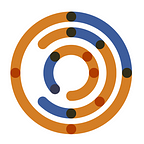Flu News Friday: The Latest in Influenza Vaccines
July 2, 2021
Conference Announcement: The Eighth ESWI Influenza Conference is December 4th to 7th, 2021. Join colleagues and peers from around the world in Salzburg for the largest conference dedicated to influenza, RSV disease and Covid-19. Register here. Abstracts are due September 3, 2021; submit abstracts here.
1. The Added Value of Vaccination
Seth Berkley, Project Syndicate / June 29, 2021
Routine immunization programs not only help to prevent outbreaks of vaccine-preventable disease, but also serve as a critical first line of defense against new and emerging pathogens. Routine vaccination events strengthen primary health care, improving disease surveillance in the process. The pandemic has revealed that better global health and improved global health security are two sides of the same coin.
2. The single-cell epigenomic and transcriptional landscape of immunity to influenza vaccination
Wimmers et al., Cell / June 25, 2021
Scientists mapped the epigenomic and transcriptional landscape of immunity to influenza vaccination in humans in blood myeloid cells. Vaccination stimulates epigenetic regulation across the genome, generating immunological memory to flu viruses in the innate immune system through changing chromatin accessibility and enhancing antiviral gene expression. Results indicate that these epigenetic changes also induce protection against heterologous viruses. These insights are important for the design of future adjuvants for influenza vaccines that modulate the epigenomic landscape and provide broad, non-specific protection.
3. ACIP Backs Flu and COVID Vaccine Co-Administration
Molly Walker, MedPage Today / June 25, 2021
In an unanimous vote, the US CDC’s Advisory Committee on Immunization Practices (ACIP) approved recommendations of co-administration of influenza and SARS-CoV-2 vaccines for both adults and children. However, committee members also emphasized the importance of gathering more data on coadministration. Committee members approved recommendations for the Flucelvax cell-based, quadrivalent influenza vaccine to be administered individuals two years and older. 2021–2022 will be the first influenza season in the United States in which all vaccines available are quadrivalent.
4. Updated Universal Influenza Vaccine Landscape
Center for Infectious Disease Research & Policy (CIDRAP)
CIDRAP recently updated their Universal Influenza Vaccine Landscape to an interactive online dashboard. View all novel influenza vaccine candidates in different stages of development, categorized by type of vaccine platform. Click on each vaccine to learn more about it. The vaccines included are designed to provide broader and more durable protection against circulating and pandemic influenza viruses, compared with current strain-specific seasonal influenza vaccines. CIDRAP is developing the landscape with support from the Global Funders Consortium for Universal Influenza Vaccine Development.
5. Using cross-species vaccination approaches to counter emerging infectious diseases
Warimwe et al., Nature Reviews Immunology / June 17, 2021
The ‘One Health vaccinology’ approach draws insights from human and veterinary immunology in order to inform vaccine development. This approach could be transformative in the efforts to control emerging infectious diseases, as more than 70% of emerging infectious diseases originate from animals. The article compares immunology, applications of current vaccine technologies, and regulatory and operational considerations for vaccine deployment between humans and animals. The authors emphasize the need to move past the ‘silos’, as there are “untapped opportunities to leverage advances in human and veterinary immunology for the development of vaccines.”
6. Influenza virus infection history drives and shapes antibody responses to influenza vaccination [Pre-Print]
Fox et al., ResearchSquare / June 15, 2021
Researchers studied the impact of immune memory induced by prior flu infection on the immunogenicity to influenza vaccination. The study participants comprised of a cohort from northern Vietnam who were previously influenza vaccine näive and who had been monitored for nine years for clinical influenza infection or seroconversion. The findings indicate that recalled immunity elicited antibodies against shared epitopes, and prior memory shapes antibody protection.
7. Cost-effectiveness analysis of switching from a trivalent to a quadrivalent inactivated influenza vaccine in the Peruvian immunization program
Bellier et al., Vaccine / June 12, 2021
This article examines the cost-effectiveness and health and economic impacts of switching from a trivalent influenza vaccine (TIV) to a quadrivalent influenza vaccine (QIV) in Peru. The authors conclude the switch to QIV is cost-effective. A QIV would significantly reduce influenza cases, hospitalizations, and deaths, particularly if the communities most vulnerable were targeted for vaccination, and would result in savings for Peru’s health system.
8. FluB-RAM and FluB-RANS: Genome re-arrangement as safe and efficacious live attenuated influenza B virus vaccines.[Pre-print]
Cardenas-Garcia et al., Preprints / June 1, 2021
The humoral and cellular immunity induced by Live Attenuated Influenza Vaccines (LAIVs) are thought to be a result of mimicking a natural infection. However, limitations in their effectiveness have motivated scientists to design novel vaccines. Scientists rearranged the genomic regions that encode for viral proteins to produce two influenza B vaccine candidates. FluB-RAM utilized modified polymerase basic 1 (PB1) and Matrix 1 (M1) genes, while FluB-RANS utilized modified PB1 and Non-structural 1 (NS1) genes. Both vaccine candidates were demonstrated to be immunogenic and effectively protected mice against homologous lethal Influenza B challenge.
Emily Graul, Sabin Vaccine Institute
Visit Influenzer.org to learn more about our journey to accelerate the development of a universal influenza vaccine. @TheInfluenzers
